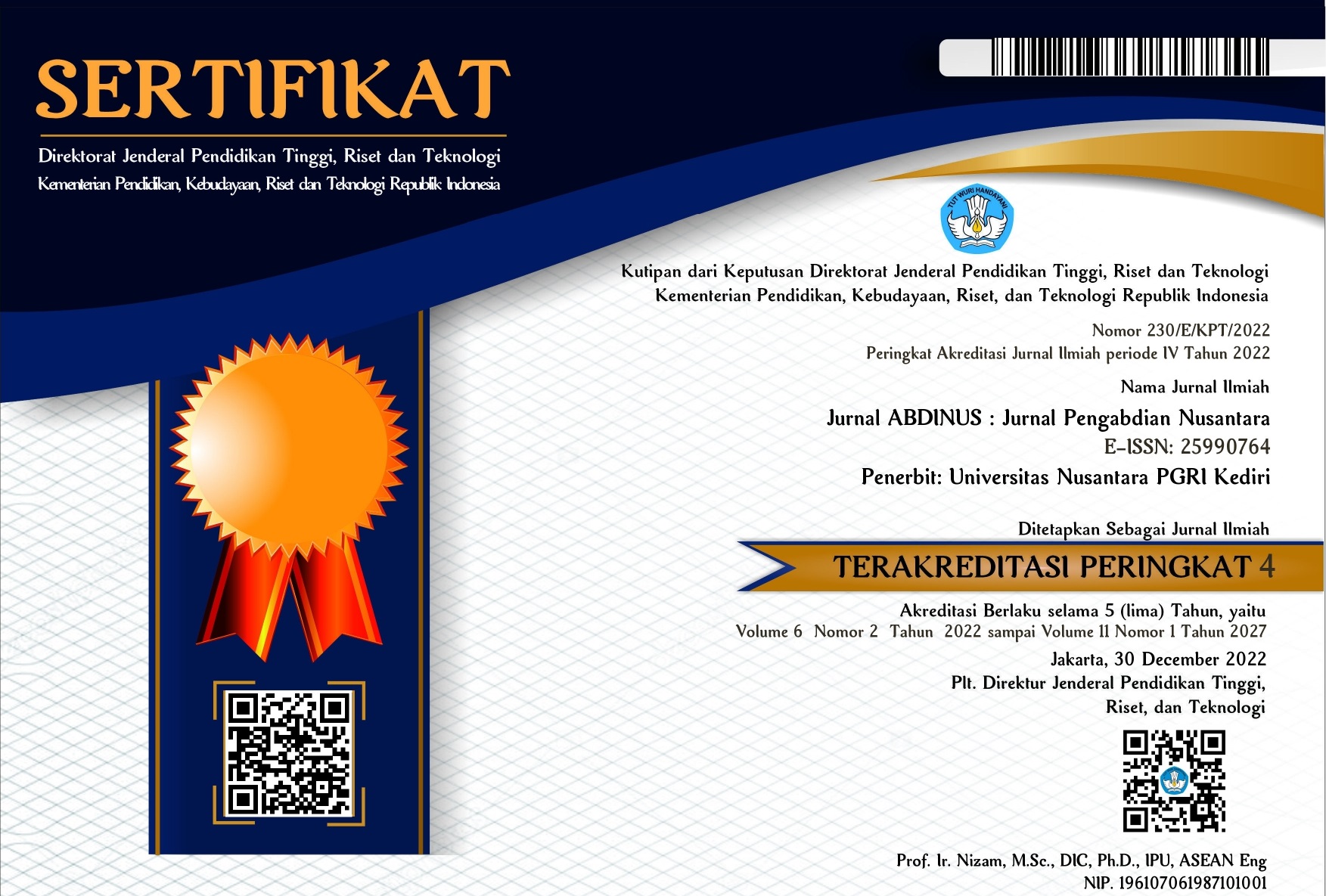Penataan Konsep dan Manajemen Pengelolaan Kampung Biru Arema (KBA) Malang Sebagai Kampung Wisata Edukasi Sejarah
DOI:
https://doi.org/10.29407/ja.v3i2.13892Keywords:
Kampung Biru Arema, Concept Exploration, Management, community-based tourismAbstract
To enliven the spirit and support tourism activities in the city of Malang, in 1962 the City Government of Malang launched the slogan Tri Bina Cita which means Malang as a city of education, industry and tourism. This is a strategic step because the three sectors support each other in the economic growth of the city. The Central Statistics Agency (BPS) notes that the number of tourist visits to Malang from year to year continues to increase significantly. This has increasingly stabilized the city of Malang as one of the favorite tourist destinations in Indonesia, not only for domestic tourists but also foreign tourists, as well as opening up enormous opportunities for the development of creative tourism areas, including Kampung Biru Arema (KBA). Moreover, culinary and heritage tourism destinations are still a mainstay in Malang. However, KBA still faces several obstacles to become an ideal tourist area, including the absence of a clear concept of what will become the flagship icon of Kampung Biru as a thematic tourist village and tourism management that has not yet been established. Therefore, the purpose of this community service is to explore the historical potential around Ledok Brantas in Kiduldalem sub-district and make it a mainstay tourism concept for KBA. In addition, another aim is to help formulate an effective and efficient Tourism Management Team. This community service running from March to September 2019 has produced the concept of community-based tourism that is ready to be further developed, namely the launch of the KBA as Historical Education Tourism Village. Another result is the holding of a community-based tourism management workshop so that management can run effectively and efficiently which in the end creates a tourism destination that continues to develop in a sustainable manner and the community becomes increasingly empowered economically, socially and culturally.
Downloads
References
______. 2005. Kamus Besar Bahasa Indonesia (edisi 3). Departemen. Pendidikan Nasional. Jakarta. Balai Pustaka.
Cahyono, M. D. (2019). Dokumentasi Pribadi
Munadhiroh. 2013. Pengelolaan Obyek Daya Tarik Wisata pada Yayasan Masjid Menara dan Makam Sunan Kudus Tahun 2013. Skripsi, tidak diterbitkan.
Suryani, N., dkk. 2016. Analisis Manajemen Pengelolaan Obyek Wisata dalam Mewujudkan Pembangunan Pariwisata yang Berkelanjutan Melalui Badan Usaha Milik Desa Adat (Studi Kasus Obyek Wisata Pantai Pandawa Kuta Selatan Kabupaten Badung). Journal Citizen Charter, Vol. 1, No. 1, p. 1-6.
Terry, George R. 2013. Principles of Management (Online Version). Jaipur: JNU (Jaipur National University).
Undang – Undang No. 9 Tahun 1990 tentang Kepariwisataan
Yuswantoro. 2019. Bangun Kampung Arema, Sutiaji Libatkan Semua Pihak. https://jatim.sindonews.com/read/10598/1/bangun-kampung-arema-sutiaji-libatkan-semua-pihak-1557878752















